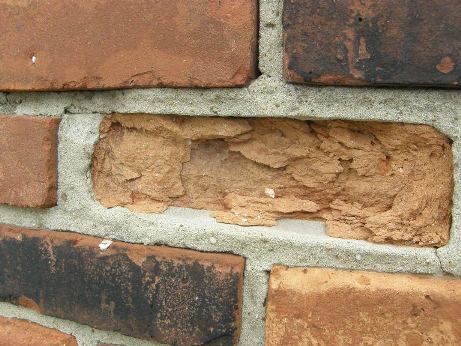Selling your home? Pay for a home inspection first to save money later

The Home Inspection Negotiation
It takes a lot to get a house ready for market. You have to declutter, paint, declutter again, clean the windows, declutter some more. You spruce up the yard, fix those little annoyances you've lived with for so long you've stopped really seeing them (a loose toilet paper holder, a squeaky regrigerator door...) and interview real estate agents. You study comparables and work with the agent to find the right price and marketing strategy. Then you live as carefully as you can in your newly spic-and-span house, on notice that a prospective could pop by at any time.
In all this hubbub it's natural for a seller to be focused on getting an offer. The seller will anticipate haggling over price and run a variety of scenarios through their mind: What if the a buyer low-balls me? What if a buyer offers full price but wants thousands in closing costs? What if there are multiple offers -- how do play the buyers off each other, and how do I choose the strongest one? This is a smart process because it allow you to be ready for any contingency. But in their eagerness to focus on price, many sellers forget that's only the first of many negotiations yet to come. And in many cases, reaching an agreement on price is a lot easier than negotiating items that turn up in a home inspection. These disputes have the potential to turn bitter, fast, because they can have a dramatic impact on short-term cash-flow. A distressed seller needs every dollar from the sale and may be reluctant to fix a loose banister, for instance. A buyer, on the other hand, is likely hemmoraghing cash to get into the house and won't be eager to incur additional expenses after they move in.
One way to head off a clash like this as a seller is to get your own home inspection ahead of time. While this advice may not be valid in all instances (for example, there's no point if you advertise your house "as is" and price it lower accordingly), it can pave the way for a smoother transaction all-around.
Books on Home Repair
How a Home Inspector Works
A home inspection costs about $400 (paid at the time of inspection) and can last three or four hours or longer. When I bought my most recent house last year, the inspection lasted six hours. You can find a home inspector either by asking a real estate agent or by consulting the American Society of Home Inspectors.
A home inspector will determine that everything in your home meets building code and functions properly. This includes the structure and foundation of your house, including things like decks and patios. It means ensuring the stove and refrigerator work, the electric box is safe, and whether not there's evidence there's been water in the basement. An inspector can also test wells, septic systems, and for radon, usually for an additional cost.
A good inspector will examine every inch of the house, from the darkest corner of your basement to the eaves of your attic into which you may never have ventured yourself. He or she will make notes along the way, pointing out deficiencies large and small. These observations will be supported by photographs and they will be recorded in a thorough report, usually within a couple of days after completing the inspection. When your buyers receive this report, they will prepare a list of things they want fixed before they'll agree to buy the house. Some things you'll be required to do (for example, any issues with electrical or plumbing). Others you can reject if you don't think it will kill the deal.

Poll on Home Repairs
Which is the most expensive repair?
Common Home Inspection Issues
According to HGTV, some issues arise with regularity during home inspections, especially in older homes. They include:
- Drainage issues with landscaping, especially any slope that directs water towards the home.
- Defficient stucco.
- Problems with the roof.
- Antiquated or amateur electrical wiring.
- Inadequate ventilation in the attic.
- Defective heating and cooling systems.
- Cracks at window and door corners caused by poor sealing.
In my own experience, I can add a few other possible things to watch out for:
- Old fuse box. If you're buying an older house, the fuse box may not be adequate to handle modern electronics. Some, including any manufactured by a company called Federal Pacific, are fire hazards in their own right and should be replaced. Replacing one can cost several thousand dollars.
- Loose banisters. If you buy a house with a staircase and the banister is loose due to decades of children whipping around on it, know that's an extraordinarily expensive repair. We had to pay more than $1,300 to secure ours.
- Outlets that aren't grounded or converted to GFCI. One or two is no big deal. An entire floor or house adds up quick.
- Bathroom and dryer vents that aren't ventilated outside. Just into the attic isn't good enough for code.
- Lead paint. Know that any house build before 1978 pretty much is guaranteed to have lead paint. This isn't a deal killer but know what you're getting into and how to work safely with it.
- Asbestos. If you own or are buying a house built before, say, 1980, you likely have asbestos either in floor tiles or insulating joists. Remediation is ridiculously expensive.
- Chimneys and masonry. We had bricks spalling on a chimney of a house we sold. We were quoted $400 to replace six bricks. Ouch.
Should I Get my Own Inspection?
That's quite an expensive punch-list, right? Why would you, as a seller, want to pay an inspector $400 to discover these or similar problems about your home before you put it on the market if a buyer is going to also pay another inspector to discover the same things?
I can think of two reasons: 1) Any defects you don't want to repair you can disclose in your listing, meaning a buyer can't really demand it be fixed as part of the home inspection deficiency since they presumably priced the defect in when they made their offer. 2) If there are things you need to fix, you have time to shop around for the best price rather than frantically searching for a contractor just weeks before settlement.
Identifying and fixing problems ahead of time also means fewer things will turn up on a buyers' inspection report, which will give greater confidence that your home has been well-maintained. Put yourself in the buyer's shoes for a moment: How do you feel if you make an offer and then subsequently receive a list of 30 defects from a home inspector? Now think about receiving a home inspectors report that lists just a handful of problems. Which makes you feel better about paying six figures or more for a home?









